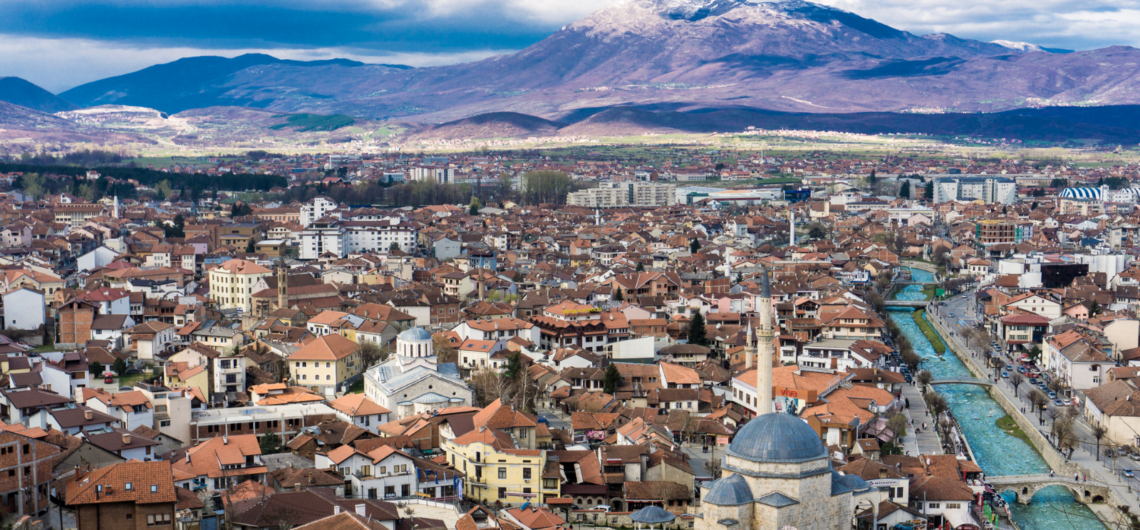Kosovo is a small landlocked country nestled between Montenegro, Albania, North Macedonia, Bulgaria and Serbia. It’s in its infancy as a tourism destination and we don’t think it gets enough credit for its vast swathes of untouched natural beauty and fascinating culture. So, we’re putting the spotlight on it this week.
Whether you’ve got an upcoming trip to Kosovo and want to swat up on your knowledge or you’re only just hearing about it, you’ll know it a little better by the end of this blog post – and hopefully feel inspired to visit.
Here are six interesting things to know about Kosovo.
1. Kosovo is Europe’s youngest country
Okay, so maybe you do know this one but we’ll tell you anyway. Kosovo officially gained independence and became the Republic of Kosovo in 2008, making it Europe’s youngest country and just a teenager at 16-years-old in 2024. And like teenagers, Kosovo is growing, changing and finding its own identity while maintaining its cultural influences from Albania, Serbia and other surrounding Balkan states, as well as remnants from the Yugoslav and Ottoman eras.
2. It’s the place to go for silver jewellery
Filigrani or filigree is a traditional type of silver jewellery in Kosovo. It dates back to 3,000 BC in Mesopotamia and ancient Egypt and it’s thought the Ottomans imported it during the 15th century. Unlike other traditions, filigree is very much still alive and thriving in Kosovo, especially in Prizren where there’s a booming filigree industry. During our 7-day multi activity holiday in Kosovo, we’ll take you to one of the artisanal workshops where you can witness the intricate process of working with pieces of silver no thicker than a strand of hair and transforming it into beautiful pieces before having a go yourself.

3. It has a lovely pre-wedding tradition
Kosovans know they have some epic scenery on their doorstep, so it’s common for couples to put on their wedding attire and go for a pre-nuptial photoshoot in nature before the big day. With the Accursed Mountains, Rugova National Park and the Sharr Mountains at your disposal, why wouldn’t you take advantage? In fact, why wait to get married? Come on one of our adventures in Kosovo and we’re always happy to make a pit stop for photos, no ring necessary.
Related:
- 6 things you probably didn’t know about Serbia
- 7 things you can only see, eat or do in Albania
- The 7 best national parks in the Western Balkans
4. Some brides wear a traditional wedding day makeup
We really could write a separate blog post about wedding traditions in the Balkans, but we’ll leave you with just one more for now and that’s a traditional wedding makeup worn by the Gorani community, an ethnic Slav group found mostly in southern parts of Kosovo, Albania and North Macedonia. It’s been a tradition for hundreds of years but sadly, it’s a dying one.
A heavy white base is applied to the face before traditional lines and symbols are added and embellished with sequins or gems. The makeup is meant to ward off evil spirits and bring luck to the bride and it’s always applied by an older woman. You can see travel blogger Eva zu Beck getting it done in the TikTok video below.
@evazubeckofficial Sooo… I got dressed up as a traditional Kosovo Bosniak bride 😍 #kosovo #travel
5. Kosovo has prehistoric forests
As a country, it may be Europe’s youngest, but within its borders stand some of the continent’s oldest trees. You will find them deep in the Accursed and Sharr Mountains. Large swatches of endemic Balkan beech and Macedonian pine are so untouched and inaccessible by humans, they’re considered primaeval – as are some of the wildlife species living there such as the Eurasian Lynx.
6. Two British pop stars have Kosovan heritage

Singer-songwriter Dua Lipa is the oldest daughter of Albanian-Kosovan parents who both came from the capital Pristina (Priština in Serbian/Prishtinë in Albanian). She gets her musical talent from her father who was the lead singer of Kosovan rock band Oda. Lipa was born in London but she lived in Pristina for a while with her family after Kosovo declared independence in 2008. She moved back to London on her own at age 15 to pursue her singing career.
Likewise, singer-songwriter and actress Rita Ora was born Rita Sahatçiu Ora in Pristina in 1990 (then part of Yugoslavia) to Albanian-Kosovan parents. They left Kosovo the following year to escape the persecution of Albanians during the breakup of Yugoslavia and she grew up in Notting Hill in London.
Feeling inspired? Subscribe to our free monthly newsletter for more lesser-known facts about the Balkans, special offers and expert insider tips.


Comments